
Miniature Bearings for Precision Applications
Micro or Miniature bearings are essential components in a wide range of mechanical systems, from medical instruments, robotics, and all types of industrial machinery. They are designed to reduce friction and support loads, allowing machines to operate efficiently and reliably. However, in precision applications, such as medical devices, aerospace equipment, and optical instruments, conventional bearings may not provide the level of accuracy and performance required. The selection of the appropriate bearing for a specific application can greatly affect its overall performance and reliability.
In this article, we will explore the features and benefits of high-quality miniature bearings and discuss how they can improve the performance and efficiency of precision applications.

What are Precision Micro or Miniature Bearings?
Precision micro or miniature bearings are typically manufactured to very tight tolerances and with high-quality materials to ensure that they can withstand high speeds and loads while maintaining accuracy and precision. They are often made from 440C stainless steel, ceramic, or other types of steel materials, and can be designed with several types of cages and seals to meet specific application requirements.
One of the key features of precision micro or miniature bearings is their size. They are typically smaller than standard bearings and can have outer diameters as small as a few millimeters. This small size allows for compact and lightweight designs, making them ideal for applications where space is limited or weight is a concern.
Overall, precision micro bearings play a critical role in enabling the high-precision and high-speed performance of small and precise equipment, and their use is essential in many industries where precision is key.

Applications for Precision Micro Bearings
Precision micro bearings are used in a wide range of applications, from miniature robotic systems and medical devices to aerospace and automotive systems. Some of the most common applications include:
Medical Equipment
Precision micro bearings are used in medical equipment such as dental drills, surgical tools, and diagnostic equipment. They provide the smooth and accurate motion required for precise procedures and enable equipment to operate at high speeds while maintaining accuracy and reliability.
Aerospace Components
Precision micro bearings are used in aerospace components such as gyroscopes, navigation systems, and flight control systems. These bearings provide the high-precision motion control required for stable flight and accurate positioning.
Robotics
Precision micro bearings are used in robotics applications such as robot arms and grippers. They enable precise and smooth motion control, which is essential for accurate positioning and efficient operation.
Semiconductor Manufacturing
Precision micro bearings are used in semiconductor manufacturing equipment such as wafer-handling robots and inspection systems. They provide the accuracy and precision required for high-quality semiconductors.
Optical Equipment
Precision micro bearings are used in optical equipment such as cameras, telescopes, and microscopes. They enable smooth and precise motion control, which is essential for accurate focusing and image capture.
Benefits of Using Precision Micro Bearings
Using precision micro bearings in precision applications offers several benefits, including:
- High Accuracy
Precision micro bearings are manufactured to extremely tight tolerances, ensuring accurate and repeatable performance.
- Low Friction
Precision micro bearings are designed to reduce friction and minimize energy loss, allowing machines to operate more efficiently.
- Long Life
Precision micro bearings are typically made from high-quality materials and are designed to withstand high loads and harsh environments, ensuring long service life.
Types of Precision Micro Bearings
There are several types of precision micro bearings available, each designed for specific applications. Some common types include:
Angular Contact Bearings
Angular contact bearings are designed to handle both radial and axial loads while maintaining high accuracy and precision. They are commonly used in applications such as machine tools, robotics, and medical equipment.
Deep Groove Bearings
Deep groove bearings are designed to handle radial loads and are commonly used in applications such as electric motors, gearboxes, and pumps. They are also used in high-speed applications due to their low friction and high accuracy.
Miniature Thrust Bearings
Miniature thrust bearings are designed to handle axial loads and are commonly used in applications such as medical equipment, aerospace components, and robotics.
Ceramic Bearings
Ceramic bearings are made of ceramic materials such as silicon nitride or zirconia, which offer higher stiffness, lower friction, and better resistance to corrosion and wear. They are commonly used in applications such as high-speed machine tools, electric motors, and medical equipment.
Hybrid Bearings
Hybrid bearings are a combination of ceramic balls and steel races, which offer higher stiffness and lower friction compared to all-steel bearings. They are commonly used in applications such as electric motors, generators, and gearboxes.
Stainless Steel Bearings 440C
440C stainless steel bearings are designed to offer better resistance to corrosion and wear than 52100 steel. With the introduction of Cronidur 30 stainless steel many types of bearings can be manufactured for use in applications in extreme harsh environments. NMB, TPI, and FAG miniature bearings are commonly used in applications such as medical equipment, food processing equipment, and marine applications.
In addition to the types of precision micro bearings, they are also classified into different classes based on their level of accuracy and tolerance. This classification is defined by the International Organization for Standardization (ISO) and is commonly used in the bearing industry.
The ISO classification standards define precision bearings in classes P0, P6, P5, P4, and P2. The classes are defined based on the maximum allowable deviation of the inner and outer raceways and the rolling elements.
The classification is important because it helps to ensure that bearings are manufactured to the required level of accuracy for a specific application. For example, applications that require high levels of accuracy and precision, such as machine tools, require bearings in the higher P classes, while applications with lower accuracy requirements, such as conveyor systems, electric motors, gearboxes, etc. may use bearings in the standard ABEC or ISO tolerance.
How to Choose the Right Precision Micro Bearings
Choosing the right precision micro bearing for a specific application is critical to ensure optimal performance and reliability. Here’s a guide to help you choose the right precision micro bearing:
- Identify the Application Requirements
Before selecting a precision micro bearing, it’s essential to understand the application requirements, including load, speed, accuracy, and environmental conditions. This information will help you narrow down your options and select a bearing that can meet the specific application requirements.
- Choose the Bearing Type
Once you’ve identified the application requirements, choose the appropriate bearing type. For example, if the application requires high accuracy and precision, an angular contact bearing may be the best option. If the application requires high-speed performance, a deep groove bearing, or ceramic bearing may be a better option.
- Consider the Bearing Material
The material of the bearing affects its performance and durability. Stainless steel bearings are ideal for applications in harsh environments, while ceramic bearings offer high stiffness, low friction, and resistance to wear and corrosion.
- Check the Bearing Tolerance Class
Precision micro bearings are classified into different classes based on their level of accuracy and tolerance. Check the ISO classification standards for the specific application requirements and select a bearing with an appropriate tolerance class.
- Consider the Lubrication
Proper lubrication is essential for the optimal performance and longevity of a precision micro bearing. Consider the lubrication requirements for the specific application and select a bearing that can be properly lubricated.
- Evaluate the Supplier
The supplier of the precision micro bearing is critical. Choose a reputable supplier that offers high-quality bearings and provides excellent customer support.
Contact for quick and competent service Pacific International Bearing Sales Inc (PIB).
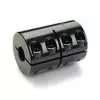
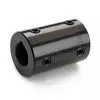
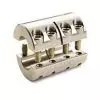
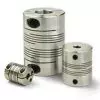
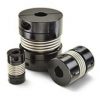
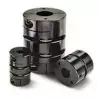
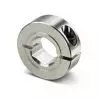
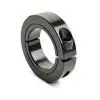
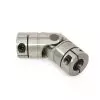
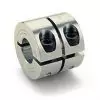 Short Rigid Couplings
Short Rigid Couplings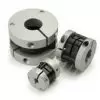 Controlflex Couplings
Controlflex Couplings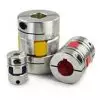 Jaw Couplings
Jaw Couplings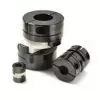 Oldham Couplings
Oldham Couplings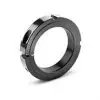 Bearing Locknuts – TCN
Bearing Locknuts – TCN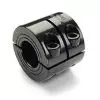 Double Wide Shaft Collars
Double Wide Shaft Collars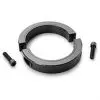 Heavy Duty Shaft Collars
Heavy Duty Shaft Collars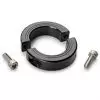 International Series Shaft Collars
International Series Shaft Collars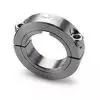 Keyed Shaft Collars
Keyed Shaft Collars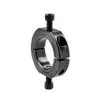 Mountable Shaft Collars
Mountable Shaft Collars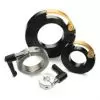 Quick Clamping Shaft Collars
Quick Clamping Shaft Collars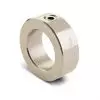 Set Screw Shaft Collars
Set Screw Shaft Collars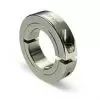 Thin Line Shaft Collars
Thin Line Shaft Collars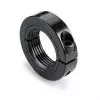 Threaded Shaft Collars – Pacific International Bearing Products
Threaded Shaft Collars – Pacific International Bearing Products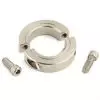 Two-Piece Shaft Collars
Two-Piece Shaft Collars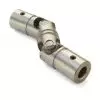 Friction Bearing Universal Joints
Friction Bearing Universal Joints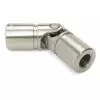 Needle Bearing Universal Joints
Needle Bearing Universal Joints

